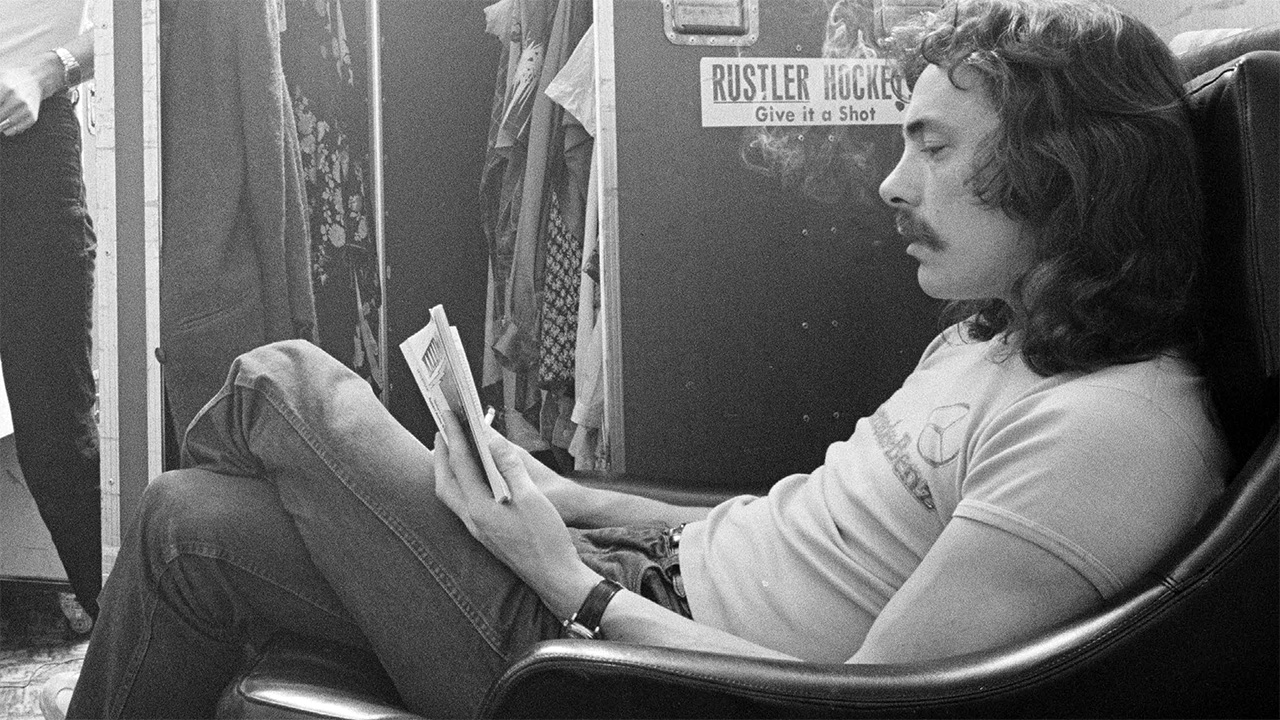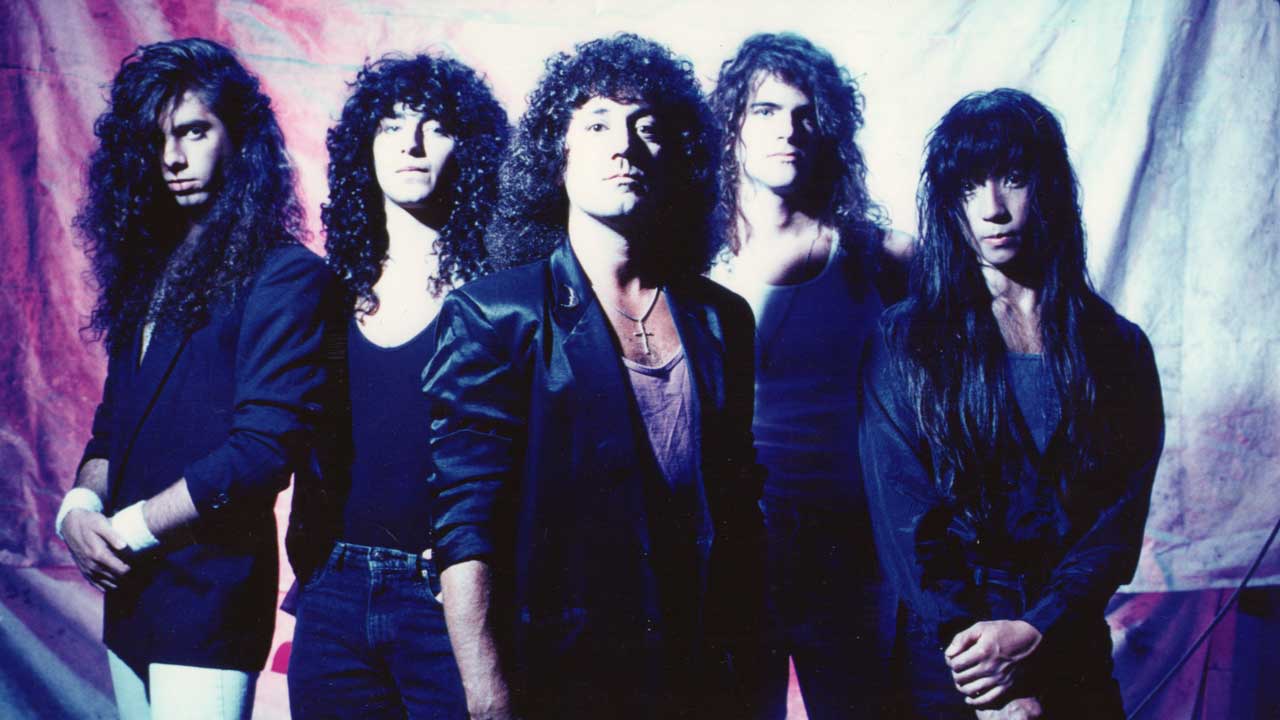“The reason Rush could rock while referencing Bertrand Russell and Elizabethan drama”: Neil Peart’s most powerful lyrics
Along with punching out impressive drum parts, he brought Tolkien, Twain and Wilde to bear on the world of prog. Here are just 10 of his best moments

Neil Peart’s place in the pantheon of rock greats was secured by his innovative drumming with Rush; but no less awe-inspiring was his proficiency as a lyricist. A voracious devourer of the written word, his knowledge spanned the literary canon from the classics to non-fiction that embraced every subject under the sun, and beyond. In 2020 Prog writer Chris McGarel – who was inspired by Peart to achieve his master’s degree in English Literature – selected 10 of the most evocative Rush lyrics.
Anthem (Fly By Night, 1975)
Beneath, Between And Behind was the first lyric to fall from Peart’s pen, but it was Anthem that the world would hear first. The lead track from Fly By Night announced a new Rush with a thunderous call to arms.
Inspired by Ayn Rand’s novella of the same name, Anthem is a hymn to individualism (‘Live for yourself / There’s no one else more worth living for’) and opened a seam that would be mined to its depths on the epic 2112, causing controversy and prompting Peart later to distance himself from Rand’s philosophy. As an opening salvo, Anthem hit its target.
The Trees (Hemispheres, 1978)
This pastoral parable of oaks and maples would also court controversy. A childlike, Tolkien-esque tale of anthropomorphism, it takes a sinister turn as the trees of the forest are kept equal ‘by hatchet, axe and saw.’
The genius of The Trees lies in its literary simplicity, masking its political allegory in the plain language of fable. Its perceived anti-Communist message (‘So the maples formed a union / And demanded equal rights’) would prompt some to lazily dub Rush as “crypto-fascist” – a label they’d struggle to shrug off for some years.
Freewill (Permanent Waves, 1980)
The theme of individualism would resurface in Freewill. Again the lyrics work on multiple levels, alluding both to self-determination and agnosticism: ‘You can choose a ready guide / In some celestial voice / If you choose not to decide / You still have made a choice.’
The drummer articulates a musicality that few lyricists can muster – the sound is as important as the semantics. Its lines are littered with alliteration: ‘phantom fears,’ ‘kindness that can kill,’ ‘victim of venomous fate,’ ‘planet of playthings.’ Words were Peart’s playthings and he was having fun with this one.
Sign up below to get the latest from Prog, plus exclusive special offers, direct to your inbox!
Limelight (Moving Pictures, 1981)
One of Rush’s most recognisable songs, thanks to Alex Lifeson’s classic riff, Limelight is a half-cautionary, half-celebratory warning from the front lines of celebrity, reflecting as much on our desire for fame as on Peart’s own unease living in the camera’s eye.
‘All the world’s indeed a stage’ riffs on Shakespeare, and on the title of Rush’s 1976 live album. As with Hamlet, appearance and reality are set in opposition (‘Those who wish to seem / Those who wish to be’) in a catchy chorus that belies the complexity of the philosophical question within. Peart was the reason Rush could rock while referencing Bertrand Russell and Elizabethan drama.
Subdivisions (Signals, 1982)
Urban planning is an unlikely basis for a rock song, but Peart nevertheless uses the them to forge an anthem for disaffected youth. The chorus, ‘Conform or be cast out,’ has chimed with millions around the world.
If 1981’s radio hit Tom Sawyer caricatured the aloof swagger of a teenage rocker, then Subdivisions captures the stereotypical Rush fan: the misfit or the class nerd, unsure of themselves and of their place in the world as viewed from labyrinthine and sterile suburban sprawl.
Peart’s deliberate overuse of rhyme captures that mundanity and frustration: ‘Any escape might help to smooth / The unattractive truth / But the suburbs have no charms to soothe / The restless dreams of youth.’
Between The Wheels (Grace Under Pressure, 1984)
Grace Under Pressure contains some of Peart’s best writing. Its eight songs capture the 80s zeitgeist of Cold War paranoia, holocaust – both nuclear and actual – societal fear and the loss of individual identity through technology.
The summation of these concerns is Between The Wheels, a song even more relevant now in the age of rolling news saturation (‘Soaking up the cathode rays’; ‘Bright images flashing by / Like windshields towards a fly.’)
Economic depression and dystopian future are juxtaposed against the American Dream: ‘We can fall from rockets’ red glare / Down to “Brother, can you spare?” / Another war – another wasteland / And another lost generation.’
Territories (Power Windows, 1985)
The dangers of nationalism are tackled in Territories, another song that seems more relevant today than in 1985. ‘Better the pride that resides / In a citizen of the world / Than the pride that divides / When a colourful rag is unfurled,’ Peart writes, railing against the tribal ‘drunken and passionate pride’ whipped up by populist leaders.
He asks about the value of invading other lands when you’ll inevitably end up complaining about the home comforts you left behind: ‘Better people – better food – and better beer.’
Mission (Hold Your Fire, 1987)
An insight into Peart’s creative process, his striving for perfectionism. he describes experiencing art and longing for the ability to conceive those paintings or music or architecture.
‘I wish I had that instinct / I wish I had that drive.’ As in Limelight he warns about the ‘exotic and strange’ life of the creative individual: ‘We each pay a fabulous price / For our visions of paradise.’
Dreamline (Roll The Bones, 1991)
Wanderlust is a recurring theme, as evidenced by Peart’s many travelogues. In Dreamline he observes: ‘We’re only at home when we’re on the run.’ The song is a metaphor for searching for something better. Better food? Better beer? Perhaps – but also the better self.
Dreamline speaks of physical journeys as well as the roads we travel as people, of dream realisations, escaping the suburban maze, or the banality of ‘Middletown,’ or hitting the trail like a ghost rider. ‘We’re only immortal for a limited time’ is a witticism worthy of Oscar Wilde or Mark Twain.
The Garden (Clockwork Angels, 2012)
Clockwork Angels is Rush’s only concept album. It’s a sci-fi steampunk story – but it’s difficult not to read its final track as autobiographical. ‘The arrow flies while you breathe / The hours tick away / The cells tick away’ are the words of someone facing their mortality and looking back on their life: ‘The treasure of a life is a measure of love and respect.’ Neil Peart earned ours.










